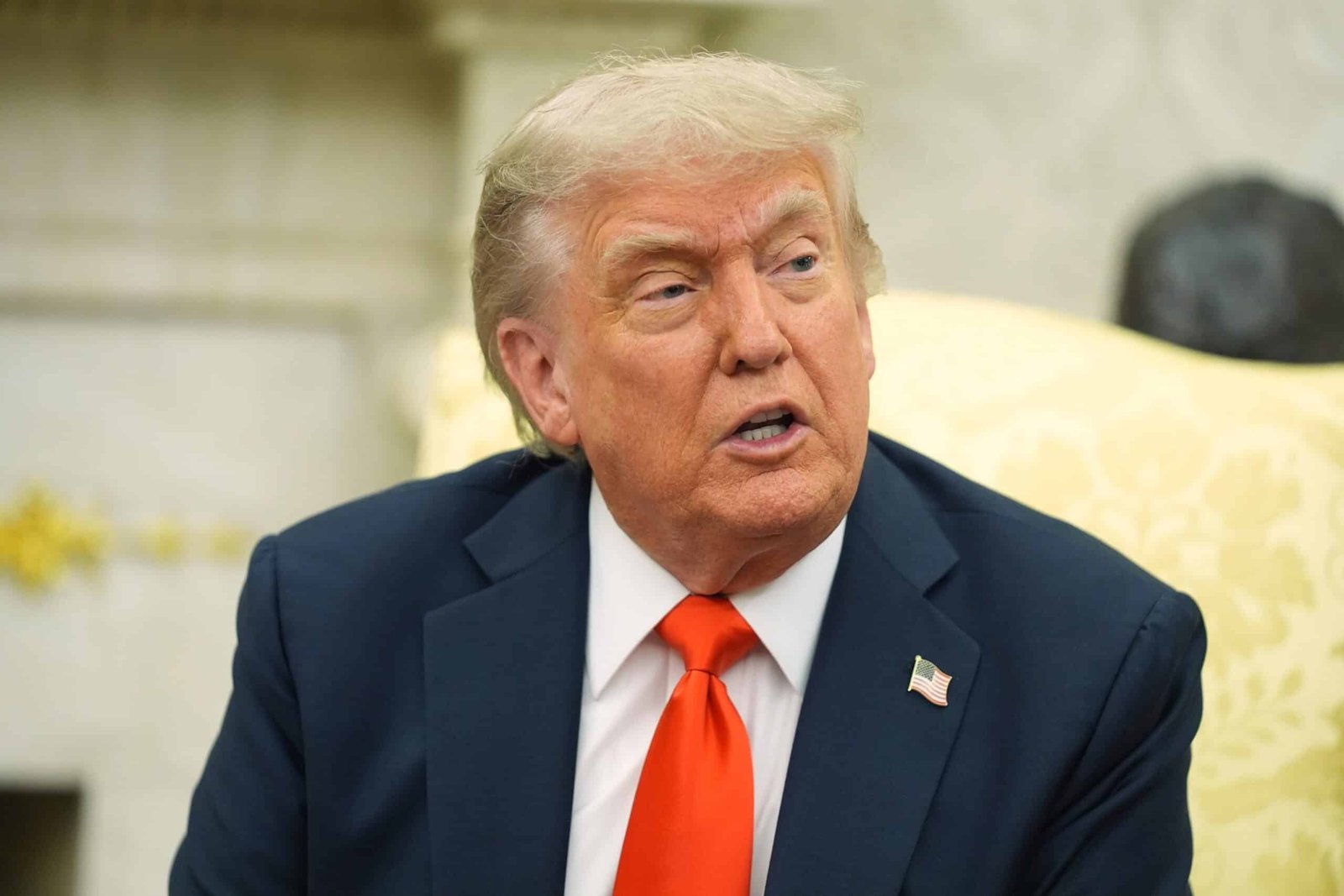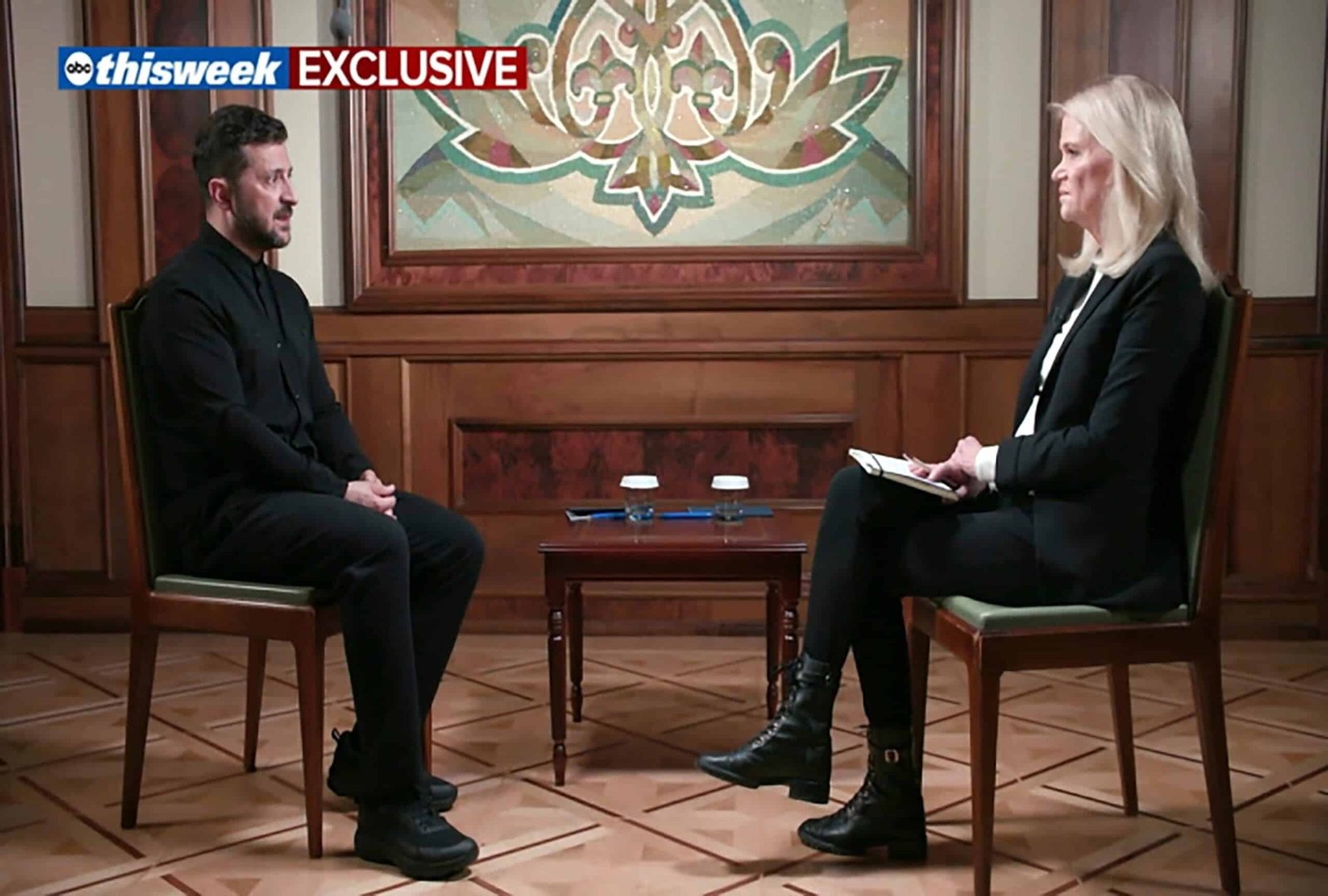President Donald Trump spoke with Chinese President Xi Jinping on Thursday in the midst of commercial tensions between the two countries, and during the call, Trump said Xi invited him to visit China.
In a publication on social networksTrump said they discussed “some of the complexities of our recently made and agreed trade agreement.” The call lasted about an hour and a half, and the leaders spoke exclusively about trade.
Trump added that “it resulted in a very positive conclusion for both countries.” He said that American and Chinese negotiating teams “will meet shortly in a place to determine.”
The president said XI invited him to visit China and Trump extended an invitation for Xi to visit the United States.
“Then, I will go there with the first lady at a certain point, and he will come here with China’s first lady,” Trump told journalists in the Oval office.
The call occurred at Trump’s request, the Chinese state agency Xinhua reported.

President Donald Trump speaks during a meeting with the chancellor of Germany, Friedrich Merz, at the Oval Office of the White House, on June 5, 2025, in Washington.
EVAN VUCCI/AP
It was the first time confirmed that leaders have spoken since Trump returned to the White House. Trump alluded to a previous call with XI, but he neither the White House has confirmed whether that took place since he assumed the position in January.
Its conversation is a significant development in the midst of a commercial confrontation between the United States and China, the two largest economies in the world.
It occurred after Trump accused China last week of violating an agreement negotiated by the senior Geneva officials last month to reverse high rates rates for 90 days. The agreement saw that the United States dropped the rate of Chinese products that reached the US of more than 145% to 30%. China dropped its Tax on American goods from 125% to 10%.
The director of the National Economic Council of the White House, Kevin Hassett, and the United States trade representative, Jamieson Greer, said China was the slow approval of export licenses for rare earth materials, which was also part of the Geneva Agreement.
Beijing retreated on Monday, saying that “Irrazonable accusations firmly rejects” and that it was the United States that “unilaterally caused new economic and commercial friction.”
Chinese leaders said they had their own concerns about the restrictions of the United States about technological exports and the Trump administration attempt to revoke the visas of Chinese students.

President Donald Trump in Washington, on May 21, 2025 and Chinese President Xi Jinping in Beijing on May 13, 2025.
AFP through Getty Images
Trump on Thursday, after his call with XI, told journalists that he believed that they “straightened any complexity” regarding the agreement.
“I think we are in a very good way with China and the trade agreement,” Trump said. “We have a commercial agreement with China, as they know, but we were straightening some of the points that have to do mainly with rare earths, magnets and some other things.”
Trump also said that “it was not a problem” that Chinese students came to the United States, despite the announcement of the administration that “aggressively” would revoke the visas.
“It is an honor to have them, frankly,” he said, before directing his attention to Harvard University. The administration has demanded information about all international school students, including names and courses.
“Look, we want to have, we want to have foreign students, but we want them to review,” Trump said. “You know, in the case of Harvard and Columbia and others, all we want to do is see their list. There is no problem with that.”




